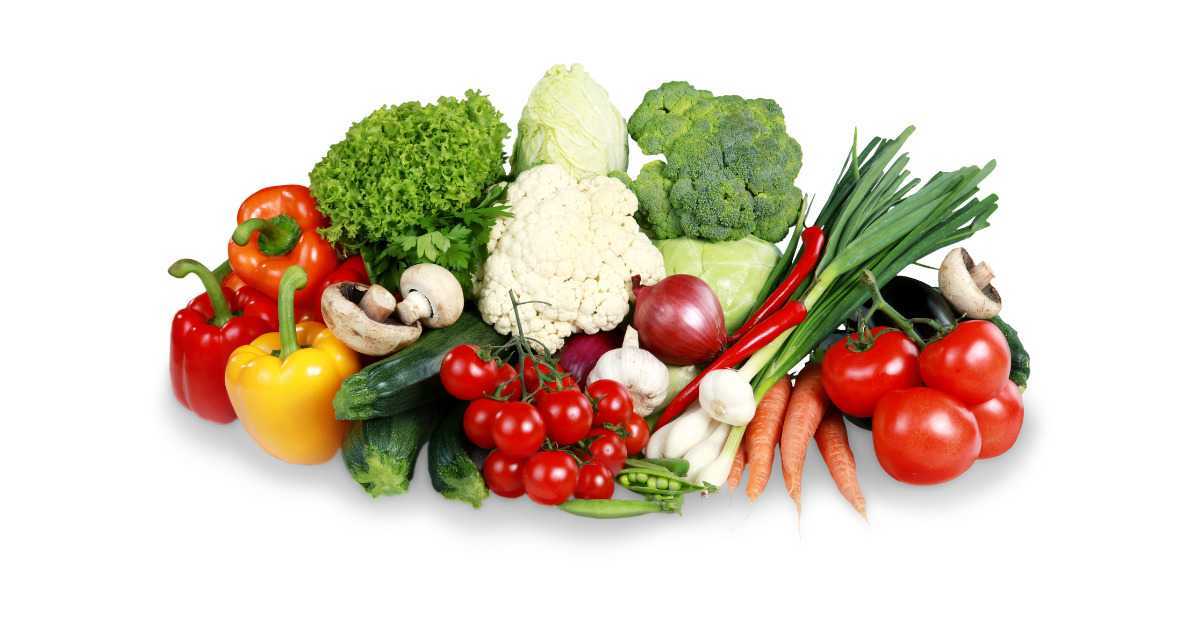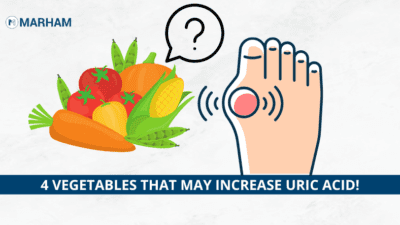Vegetables are an important part of a healthy diet and they can offer many nutritional benefits including minerals and vitamins. But vegetables to avoid with gout is the primary concern of many people who have been suffering from the condition of gout. As some vegetables can trigger gout flare-ups. In this regard, you must be careful that what should you eat.
What is Gout?
A gout is a form of arthritis that affects millions of people around the world. The condition is caused by elevated levels of uric acid in the blood, which can lead to the formation of urate crystals in the joints. These crystals cause inflammation and pain, particularly in the big toe.
It can be a debilitating condition, causing severe pain and swelling in the joints. It can also lead to other health problems, such as kidney stones and high blood pressure. Treatment for gout typically involves medications that reduce uric acid levels and prevent crystal formation. In some cases, surgery may also be necessary.
If you think you may have gout, it’s important to see a doctor so that the condition can be properly diagnosed and treated. untreated gout can lead to joint damage, disability, and other serious health problems. Moreover, vegetables avoid with gout is healthy way to get recover quickly from the condition.
Also read: Foods that Cause Gout
How is your Diet Related to Gout?
As mentioned, gout is caused by elevated levels of uric acid in the blood. Uric acid is a waste product that is produced when the body breaks down purines. Purines are found in many foods, including red meat, organ meats, seafood, and beer.
People with gout typically have a genetic predisposition to the condition. This means that their bodies either produce too much uric acid or are unable to effectively remove it from the blood. In some cases, both factors may be at play.
According to research:
“Some people manage to get their uric acid levels under control by changing their diet. But many people will need to take medication.”
Certain lifestyle choices can also increase your risk of developing gout. These include eating a diet high in purines, being overweight, and drinking too much alcohol. Gout is also more common in people who have certain medical conditions, such as diabetes, hypertension, and kidney disease.
So, Which are the Vegetables to Avoid with Gout?
If you suffer from gout, avoid vegetables that are high in purines. Purines are a type of organic compound that’s found in some foods. When your body breaks down purines, they can form uric acid. And when there’s too much uric acid in your blood, it can cause gout.
There are a few vegetables that are high in purines, which can trigger gout flare-ups. If you have gout, you may want to avoid these vegetables or eat them only in moderation.


So, below are mentioned the 4 vegetables to avoid with gout? :
1. Spinach:
Spinach is a leafy green vegetable that is high in purines. Purines are a type of organic compound that is broken down into uric acid in the body. Uric acid is the substance that causes gout flare-ups. So, if you have gout, you may want to avoid spinach or eat it only once a month.
2. Mushrooms:
Mushrooms are another vegetable that is high in purines. Like spinach, purines are broken down into uric acid in the body. Those with gout should avoid mushrooms, especially if they are cooked in wine or soy sauce.
However, some types of mushrooms may actually help improve the symptoms of gout. For example, the maitake mushroom is known to have anti-inflammatory properties.
3. Eggplant:
Eggplant contains solanine, a compound that can increase uric acid levels and trigger gout attacks. They also contain oxalates, which can contribute to kidney stones.
4. Tomatoes:
Tomatoes are high in acid, which can irritate the digestive system and trigger gout attacks. They also contain solanine, the compound that can increase uric acid levels.
Also see: Is Chicken Good for Uric Acid? 6 Pros and Cons!
Are All Vegetables Bad for Gout?
Of course, not all vegetables are bad for gout. In fact, some vegetables can actually help to reduce the risk of gout flare-ups. These include celery, cherries, and strawberries.
So, if you’re looking for ways to incorporate more veggies into your diet without triggering a flare-up, these are some good options to try.
Consult a Dietitian!
If you think you might have gout, it’s important to consult a dietitian. A dietitian can help you identify foods that may trigger gout attacks and develop a plan to avoid them.
There are many different dietary approaches to managing gout, so it’s important to find one that works for you. A dietitian can help you customize a plan that fits your lifestyle and food preferences.
You can book an online appointment with the Best Dietitians Online via the Marham app today!
FAQs
1. Do carrots aggravate gout?
Some say that carrots can actually help reduce the symptoms of gout, while others claim that they make the condition worse. There is no definitive answer, so it really depends on the individual.
2. What foods get rid of gout?
There are a few different foods that are thought to help get rid of gout or at least reduce the symptoms. These include cherries, celery, and vitamin C-rich foods. Again, it really depends on the individual so you will have to experiment to see what works for you.
3. Is cucumber OK for gout?
Cucumbers are generally considered to be safe for people with gout. They are low in purines, which are thought to trigger gout attacks. However, as with any food, it is possible that cucumbers could aggravate your gout symptoms.

